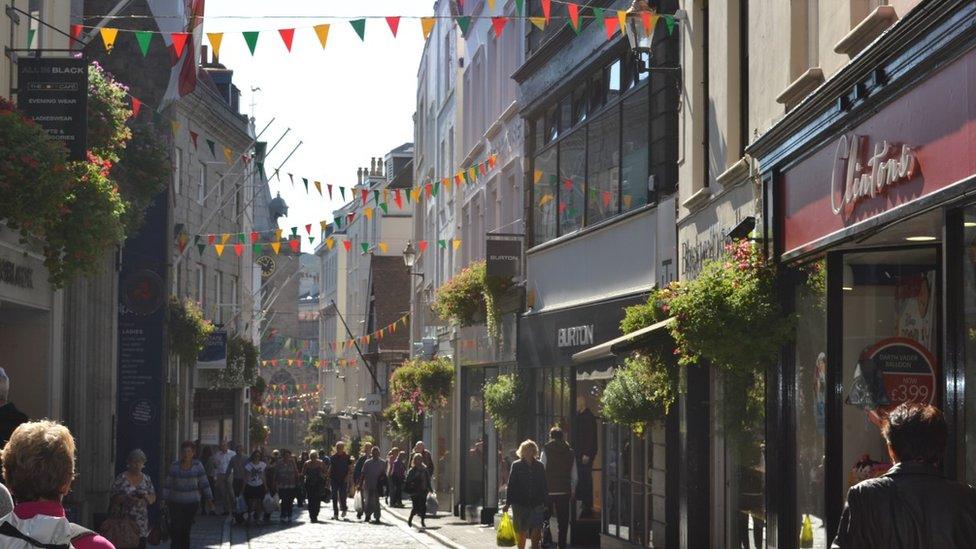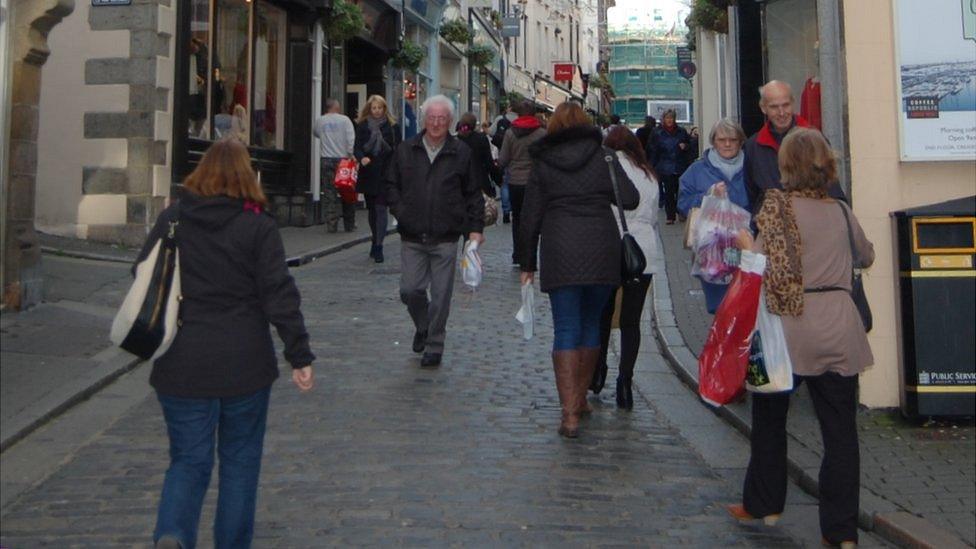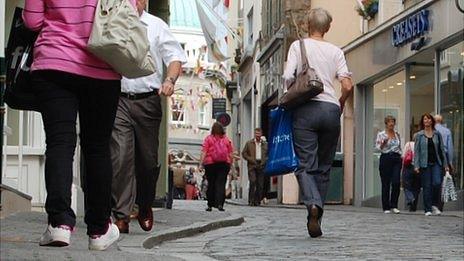Guernsey saw drop in working age population
- Published

At the end of 2014 there were 62,500 people living in Guernsey
A drop in the number of working age people living in Guernsey is "one of this most serious problems facing the island", the chief minister has said.
Deputy Jonathan Le Tocq said an "honest look" at the island's population policy was now needed.
While the 2014 population report showed a slight population rise, the number of working age residents fell.
The report found there were just under 62,500 people living in the island at the end of 2014.
It found that, as of the end of December 2014, population grew year on year by 180 people, including net immigration of 81.
'Baby boom generation'
The working age population - those aged 16 to 64 - fell by 150 from 40,777 in 2013 to 40,627 last year.
Mr Le Tocq said: "The level of net immigration is not, as yet, sufficient to halt the steady decline in the working age population.
"The steady progression of our large baby boom generation into retirement is becoming increasingly evident.
"Guernsey's existing population policy was agreed in a very different economic environment and has become increasingly distant from the realities we face today.
"Throughout this political term it has become apparent that there is a growing need for us to reassess our overarching population policies and the impact that this has on our economy, society and environment."
- Published29 July 2015

- Published31 March 2015

- Published2 February 2015

- Published2 May 2014
